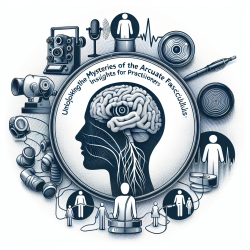As a Special Education Director, ensuring that our school district complies with state and federal regulations is paramount. Arizona's R7-2-401 rules provide a comprehensive framework for delivering special education services. Here, we break down the key aspects of these standards and highlight how TinyEYE's online therapy services can support your school in meeting these requirements.
Understanding Special Education Standards in Arizona
Arizona's special education standards, outlined in R7-2-401, incorporate the Individuals with Disabilities Education Improvement Act (IDEA) and its implementing regulations. These standards ensure that all students with disabilities receive a Free Appropriate Public Education (FAPE).
Key Definitions
- Accommodations: Provisions allowing students to access the general education curriculum without altering the content or performance criteria.
- Modifications: Substantial changes in what a student is expected to learn and demonstrate.
- Full and Individual Evaluation: A comprehensive assessment to determine the special education needs of a child.
Public Awareness and Child Identification
Public education agencies (PEAs) must inform the public about the availability of special education services for students aged 3-21. They must also establish procedures for identifying and referring children with disabilities, including those in private and home schools.
Evaluation and Re-evaluation
PEAs are required to conduct initial and re-evaluations of students suspected of having disabilities within specific timeframes. This includes using various methods to assess different types of disabilities, such as emotional, hearing, and visual impairments.
Individualized Education Program (IEP)
Each student with a disability must have an IEP developed, implemented, reviewed, and revised annually. The IEP should incorporate Arizona academic standards and address the student's specific needs.
Least Restrictive Environment
Special education services must be delivered in the least restrictive environment, ensuring students can participate in general education settings to the maximum extent appropriate.
Procedural Safeguards and Confidentiality
PEAs must provide procedural safeguards to protect the rights of students with disabilities and their parents. This includes ensuring the confidentiality of student records in compliance with IDEA and FERPA regulations.
How TinyEYE Can Help
At TinyEYE, we understand the challenges schools face in meeting these comprehensive standards, especially during therapist staffing shortages. Our online therapy services offer a flexible and effective solution to ensure your students receive the support they need. With our platform, schools can:
- Access licensed therapists across various specializations.
- Ensure timely evaluations and re-evaluations.
- Provide consistent and high-quality therapy sessions.
- Maintain compliance with state and federal regulations.
For more information, please follow this link.










